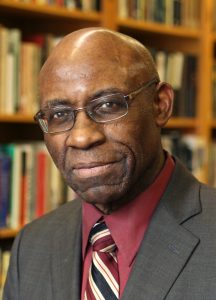
Joe Trotter grew up in the coal mining area of West Virginia. From his childhood experiences to his higher education pursuits, Trotter found many injustices in education and the work field for African Americans.
“From the beginning, I was educated in an all-black environment,” Trotter said. “It was such an entrenched system of inequality. We knew it was unjust because we could see it.”
After working as a high school teacher, he brought his passion and interest in African American urban history to his work as a professor at the University of California, Davis and Carnegie Mellon University. Once he became a professor, he not only developed an interest in the oppression of African Americans, but also how they strategized to survive in urban settings and create communities.
At 3:30 p.m. today, June 26, in the Hall of Philosophy, Trotter will deliver his lecture, “Reiterating the Centrality of Work in African American Urban History,” as a part of the Chautauqua Speaker Series, co-sponsored by the African American Heritage House and Department of Education. Trotter will use his book, Workers on Arrival, as the basis for his lecture on African American urban life.
His book details the struggles of the black working class and endeavors to refute the perception that African American workers are liabilities rather than assets.
“It’s about putting the question of work and labor relations at the center of our understanding of the African American experience,” Trotter said. “My book, Workers on Arrival, is the material I will be drawing upon to make this case.”
In this first AAHH lecture, Trotter will speak about African American urban history, focusing on the time period when African Americans became an urban population, which is much earlier than most people believe.
“The Great Migration was a great moment for black movement into cities, so many people have this perception of black urban history as a 20th-century thing,” Trotter said. “It didn’t start in the 20th century, it started in the Colonial period.”
Through his work, Trotter hopes to help change the perspective that many people have about African Americans. He said many people believe that African Americans are not workers and are dependent on government programs.
“There are still some deep stereotypes about African Americans that are hard to overcome,” Trotter said. “I wanted to show that historically, over many centuries of time, African Americans have been all about work.”
The stereotypes of African American urban life are driven by the justification of the mistreatment of black people by white elites and other workers, according to Trotter. He said those stereotypes and mistreatments helped deprive African Americans from opportunities such as education and jobs.
“All of those things accumulated over several centuries of time and changing, of course, but still left a legacy of racial division and racial misconception that still subtly influence, I think, the way that we think about race today,” Trotter said.




